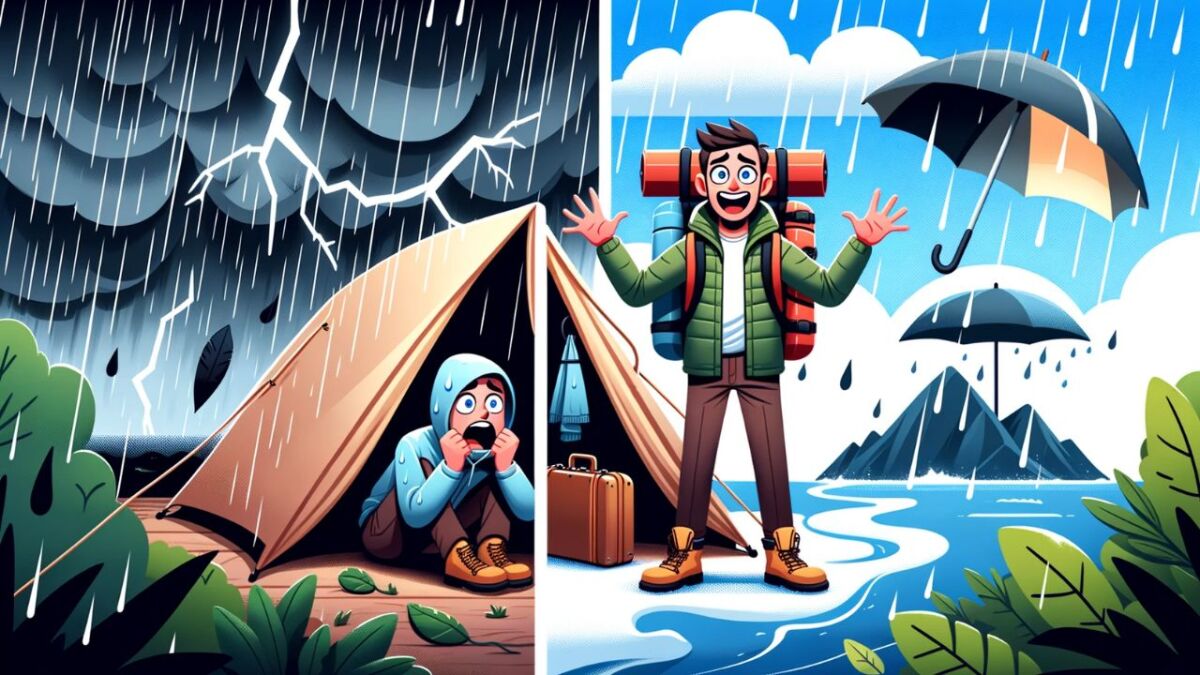
The 12 most common fears about camping and how to overcome them
👉 The key facts from this guide
- Fears are important and should always be acknowledged.
- Fears can be signposts out of the comfort zone, but some may be unfounded.
- Preparation and equipment are crucial to overcoming fears while camping.
- Most animals avoid humans and are not a threat.
- Weather changes are a real danger, so it's significant to check the weather report and be prepared accordingly.
- Trust in yourself and the environment comes from experience and overcoming fears.
Camping exposes us to the whims of nature and brings us into direct contact with the wilderness.
Many unknown factors are tied to this, which you often cannot assess correctly from the safety of your home.
Accompanying this are reports from the media, films, but also very natural fears of the unknown.
Fears can be crucial signposts out of your comfort zone. You should by no means let them stop you from diving into an adventure in nature.
To make things a little easier for you, I will address the most common fears here and explain how you can deal with them.
Because some fears are more justified than others!
If you are going camping for the first time and have doubts, you've come to the right place.
What is fear?
If you feel uncomfortable while camping, you are not alone.
Usually, this fear is intensified by the vast darkness that many people are not accustomed to when they live near many lights.
It's too dark. What if an animal tries to eat me? How do we find the toilet? What was that noise? What if I forget something?
People who go camping with me for the first time often ask me these questions.
Let's briefly explain what fear actually is.
We all know it and yet, it seems to be a burden for many of us. Fear has its justification for existence and even counts as one of the basic emotions of humans.
Without fear, we would not properly assess threats or perceive them too late, which could mean our death.
From an evolutionary perspective, fear is therefore important and normal.
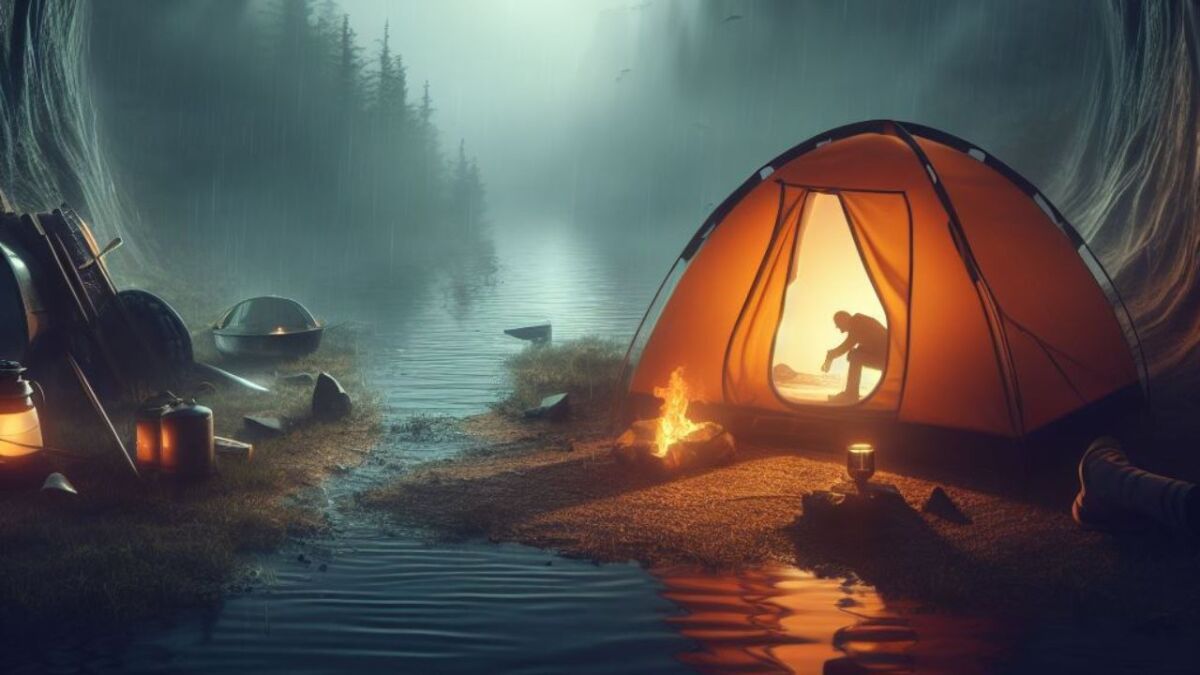
But especially in today's time, we must carefully distinguish which fear is still justified.
Because saber-toothed tigers no longer exist here, and other predators typically have more fear of us than we think. Especially in Germany, we don't need to fear this scenario.
You see, fear is initially neither good nor bad. Especially in terms of evolution, fear has played a crucial role in dangerous situations.
Quick reactions are required here and fear activates our inner survival mechanism.
But which fears are unnecessary?

And can also fear become dangerous? Definitely, when fear turns into panic (read here how to deal with panic).
So let's now clarify how it is with fear.
1. The fear of failing without technology
For me, one of the most beautiful things is to leave all my electronic devices at home or turned off while I roam in the wilderness.
But for many, this is unthinkable as they are constantly busy and distracted by things.
However nature offers enough distraction!
Instead of playing video games, you can observe the cloud game in the sky. Instead of your smartphone, you can dedicate yourself to plants and trees.
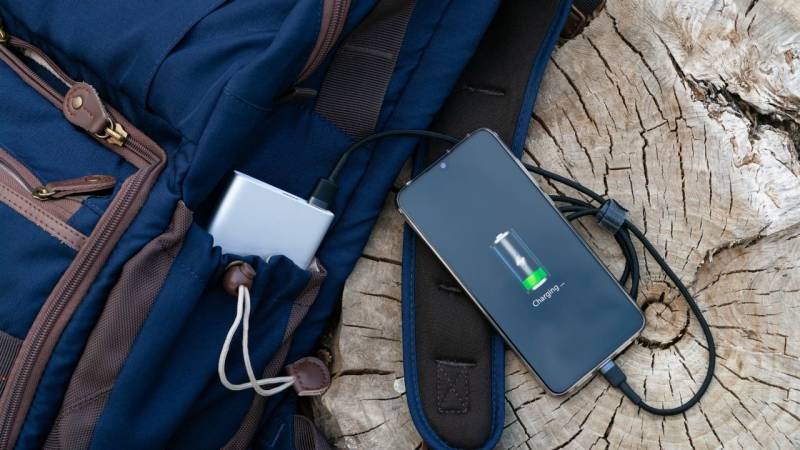
Take them in with all your senses. Instead of watching a movie in the evening, you can watch the sun set.
If you are afraid of getting lost, you can of course also use your smartphone for help. However, try to only use it for that purpose.
For your future camping trips, I recommend familiarizing yourself with reading maps and navigating with a compass. This also builds confidence in yourself and your surroundings.
Believe me: There is plenty to discover in nature, and even without your technical devices, you will find your way.
2. I will get lost
Getting lost in the forest is a common fear.
This fear is not unfounded. Because without visual orientation aids, we humans often simply walk in circles without realizing it. Especially in vast wilderness, this can lead to getting lost in the forest.
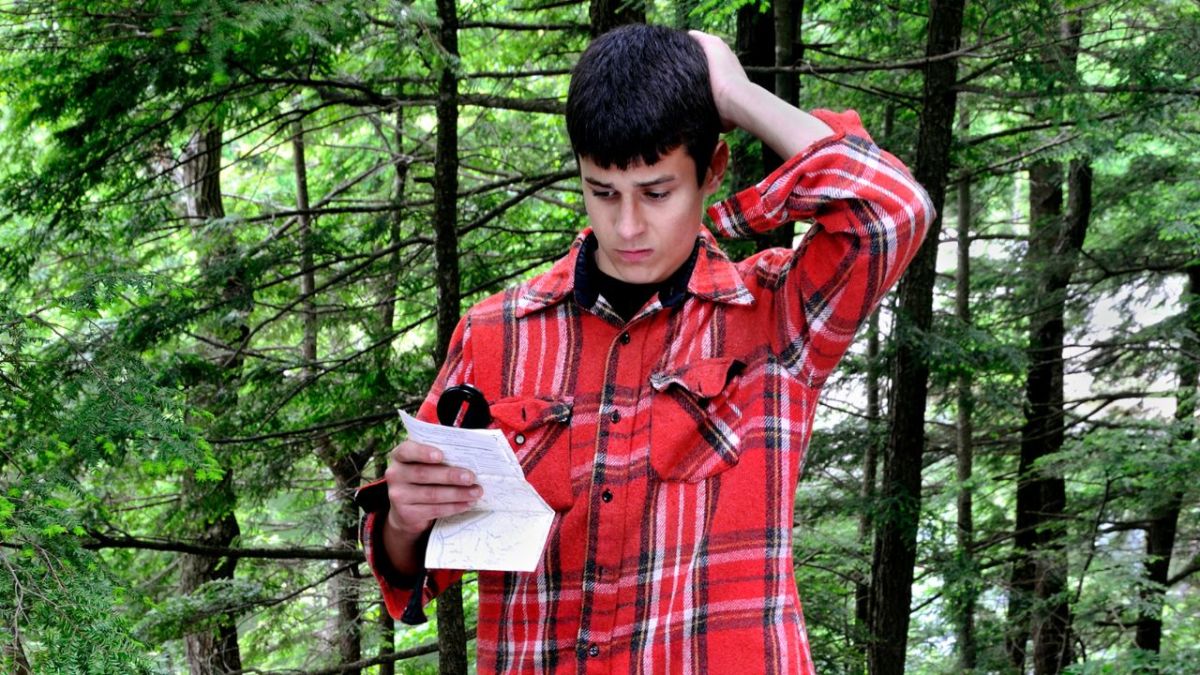
However, there are some simple tips to avoid this.
During your first camping trip, you might not want to choose a jungle in South America, but rather start in a familiar forest or even visit a campground. This way, you will at least get a feel for camping itself.
If you are camping in unfamiliar forests, I would recommend scouting the area around your campsite first.
What does it look like here, what major landmarks are there, where does a stream or river flow, and so on. This way you get a sense of the landscape and can also find your camp much easier in case of emergency.
In the ideal case, you have a compass with you and know how to use it. Otherwise, the sun, moon, stars, plants, or trees can also guide you in the right direction.
Of course, you have to delve into it and that's why I have created a comprehensive guide to orientation and navigation without a map and compass.
I can only tell you: It's worth it! It creates trust on one hand and is also a lot of fun.
If you are completely unsure, you can of course also use your mobile phone for help. Download the map of the area so that you can use it offline as well.
Also read
14 Commandments and Prohibitions When You Get Lost in the Forest - It's easy to get lost in the forest. Here are 14 dos and don'ts to make it back home in one piece. Follow these tips to navigate the forest.
3. Wild animals will attack me
This fear is justified in very few cases.
Moreover, here it applies that the appropriate preparation and measures will protect you from most encounters with animals.
A large part of the animals probably don't want to be near you anyway, and the other part is likely only interested in your food.
Therefore, there can be quite a lot going on around your tent at night. This can be unsettling, but when we know that it's just the badger, raccoon, or a few mice, we can continue sleeping peacefully.

I have often heard mice under the hammock or next to my tent. More or less, it was nice to imagine that the mouse family lives there now, and we are living together here.
Or once in winter, a fox came by, standing 5 meters away from our camp. He then continued on and came back three more times during the night - but he only looked and then left again.
Bears are animals that can seriously endanger us. It is important not to store our food in the tent and to seal it as airtight as possible.
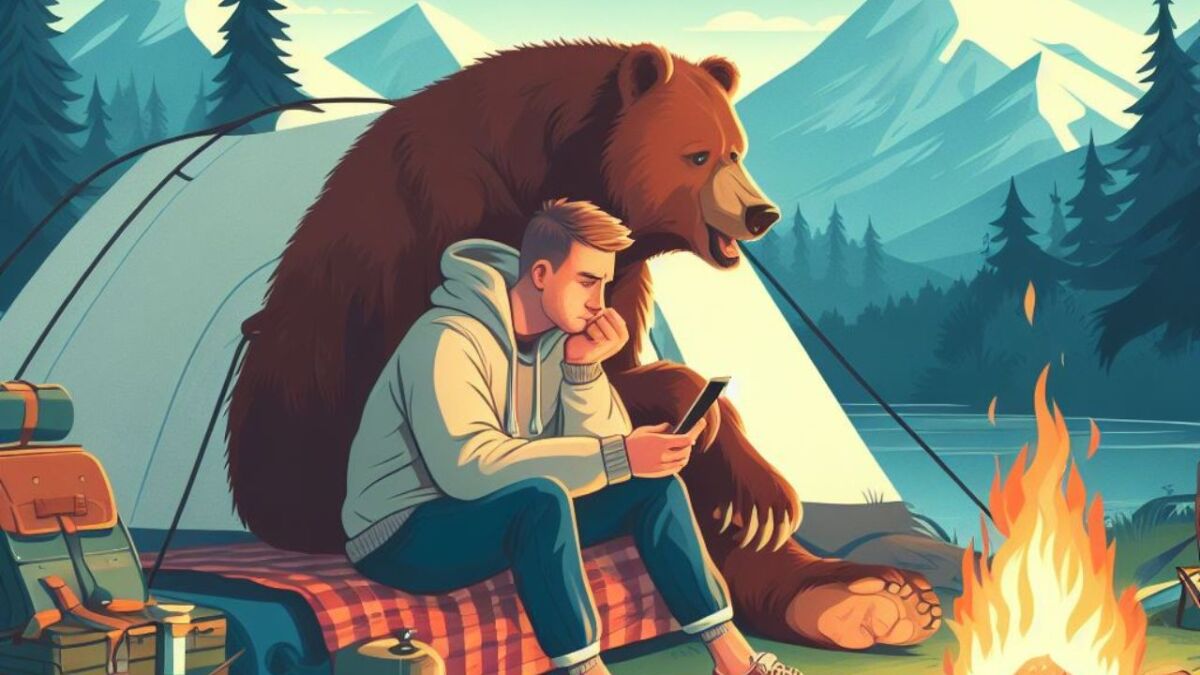
Wild boars can also become quite curious, especially when they are young. For more information, take a look at my comprehensive guide to wild boars.
Wolves also occur here, but you don't have to worry about them even less. They avoid us humans and can smell or see us from afar and keep their distance. In this guide, you will find all the essential information if you ever encounter a wolf.
Animals can smell everything. In the best case, you pack your food in a bag and hang it in a tree that is a few meters away from your tent.
In addition, it is significant to familiarize oneself with the sounds of animals. Some animals can sound terrifying at night.
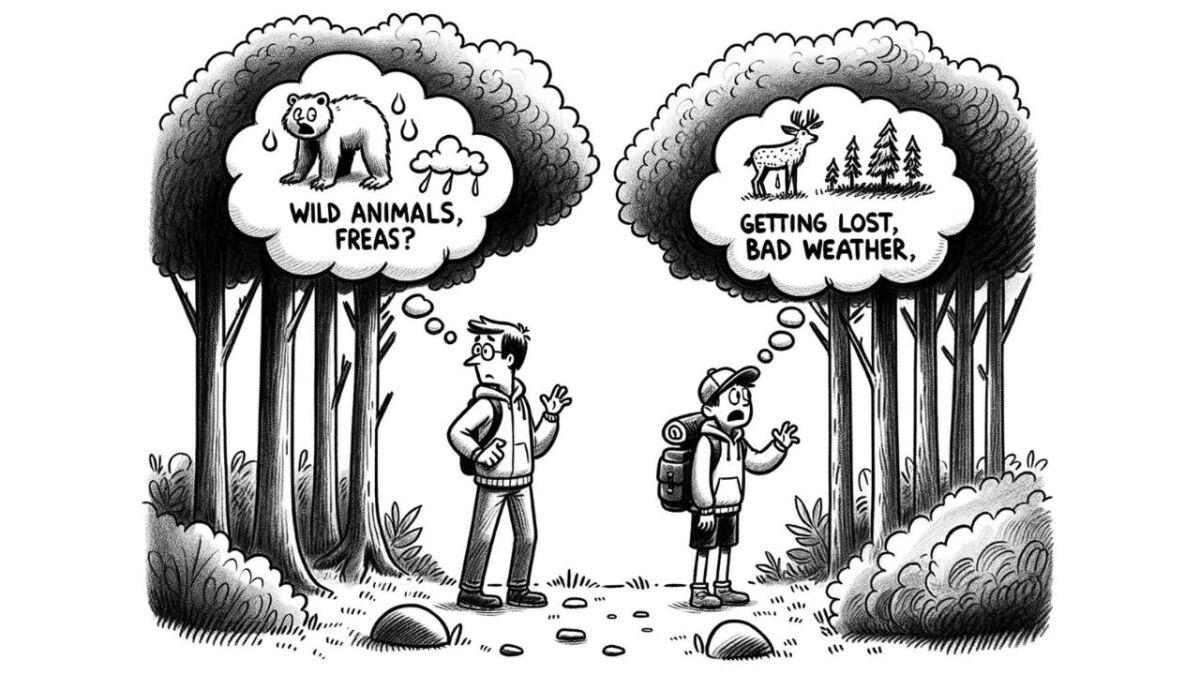
So some noises could rob us of our entire sleep, but when we know that this is only the mating call of the fox, we see the matter in an entirely different way.
Even deer can bark strangely, and you should listen to that beforehand everything on this website.
Important: Outside of Europe, you will encounter different animals. I will not address this here, as you want to focus on camping itself first.
4. The wind blows my tent away
This only happens if you don't prepare and inform yourself sufficiently.
If you are camping in the middle of a field in the summer, there is a risk of wind roses. These can easily rip your tent out of the ground and catapult it several meters into the air. This can often be observed at festivals.
If you are camping in or near the forest, you should not fear wind roses. However, strong wind can damage or blow away your tent.
Therefore, it is important to anchor your tent securely in the ground, and to do this on solid ground.
Better yet: Do not use pegs, but tie it to natural objects such as roots and trees.
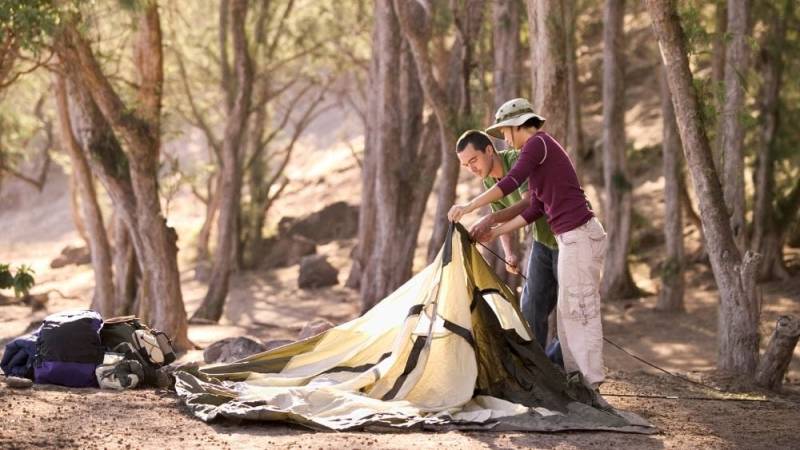
It is also good to leave your camping equipment in the tent, as it will be additionally weighted.
Nevertheless, it is important to check the weather forecast in advance to avoid spending your first camping trip in a storm.
Read also
Stop struggling with your tent: What beginners need to know about setting up a tent - No matter how impressive the technical specifications or how modern the materials are - your tent is useless if you don't know how to set it up.
5. Fear of being caught by a flood
Especially after the flood events in Germany 2021, flooding is a real fear.
This also applies to camping. Therefore, it is extremely important to inform yourself about the weather conditions of the region and to check if there is a risk of flooding.
If this is not the case, you don't need to worry about heavy rainfall. Provided that your tent is waterproof, and you haven't set up your tent in a depression.
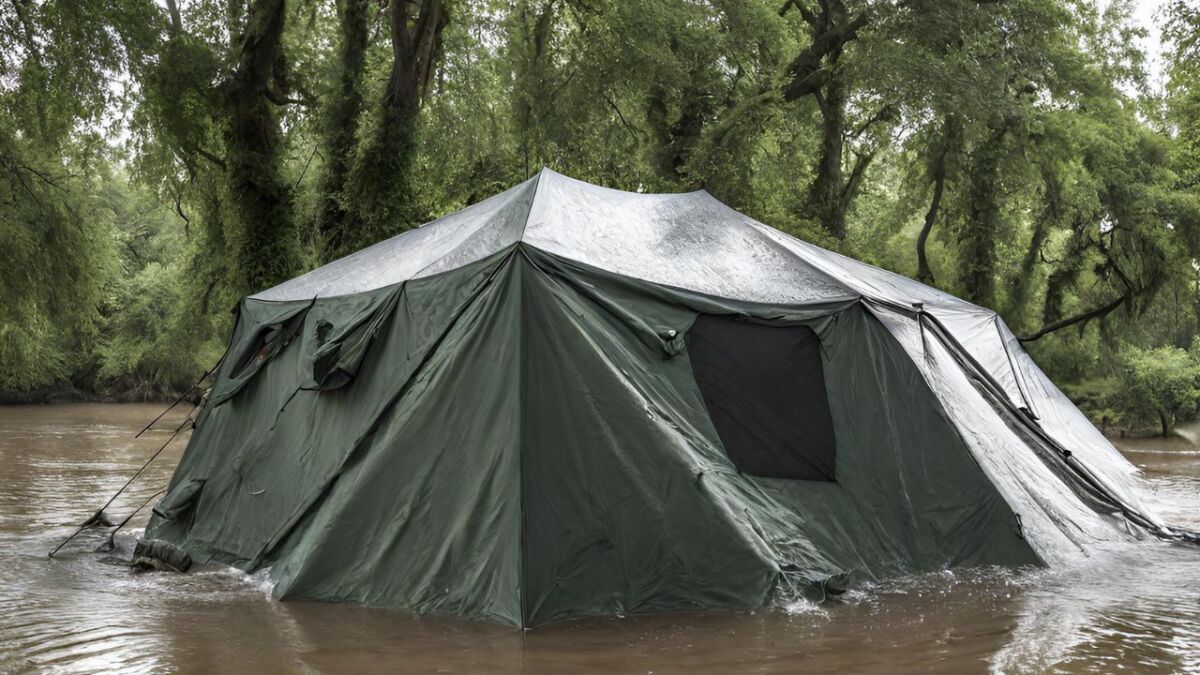
6. Fear of Boredom
I can understand your concern, especially if you are planning your first solo trip.
However, I always find something to do in nature. You can start searching for your food or simply engage with the surrounding plant life. It's best to read this guide to emergency food in summer and also this one if you're out in winter.
If you have a suitable knife, you can also try carving or pursuing another ancient craft. Here I have listed Bushcraft ideas of what you can do.
If you can't do much with nature at first, a book is also a valid option to keep yourself busy. I have listed my best bushcraft books here.
In addition, you can indulge yourself in the camping kitchen or practice photography.
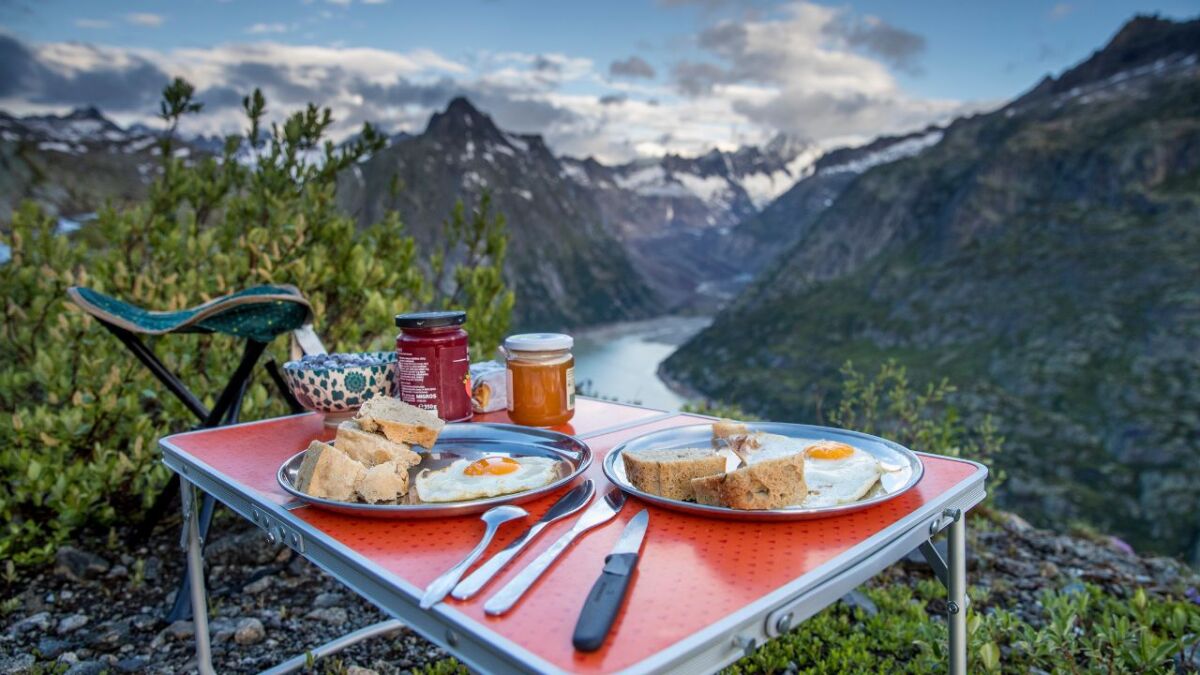
You see, there is a lot to do and if you allow it once, you will also find plenty of opportunities for occupation.
What affects me more than boredom is loneliness. After a few days, I often miss my loved ones at home. However, this is also the moment when I appreciate it the most!
7. Fear of the Dark
Yes, the darkness can be scary at first, and I sometimes still feel uncomfortable.
However, you will never overcome this fear if you don't confront it (Read here: Overcoming fears, sleeping outside). If you struggle with it, start at home and move around your house in the dark. You will notice that your perception adjusts to the absence of light.
In the forest, this is almost identical. If you're not camping in dense woods, it won't be pitch black at night either.
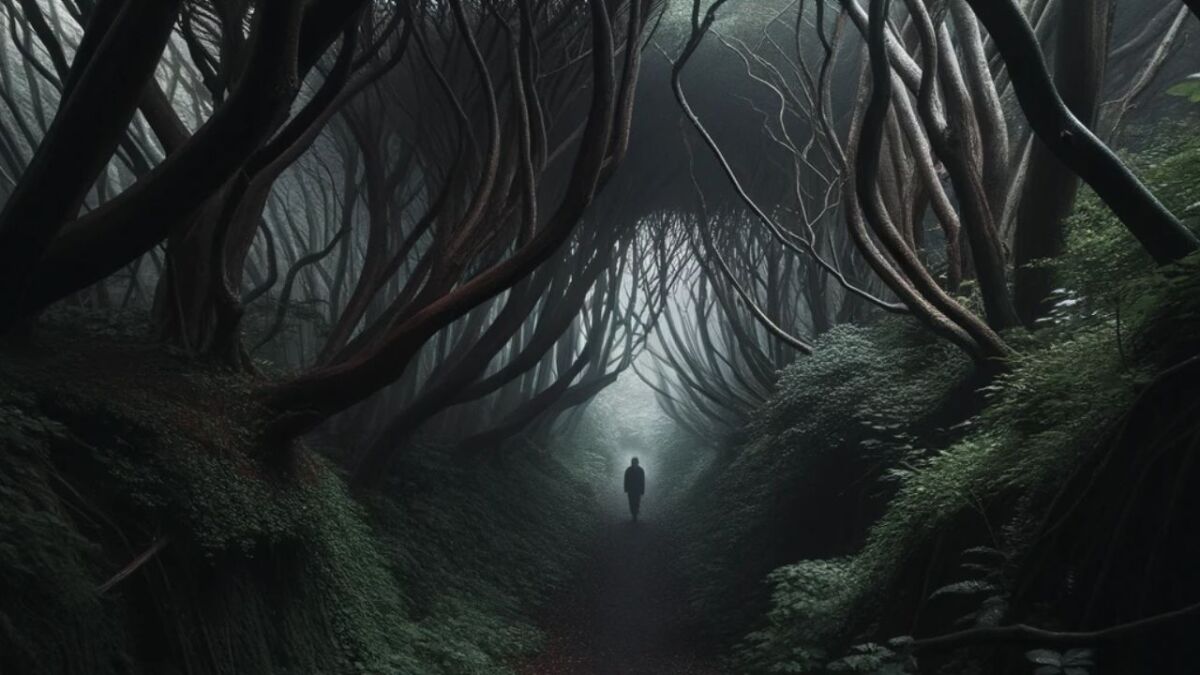
Typically, the moon shines and provides us with a little light. If it is still too dark, you should have a headlamp ready. Make sure to choose a lamp with red light or green light to avoid scaring away any animals.
In the evening, you will most likely keep a fire burning. Fire provides additional light and also keeps animals away from your camp.
The prerequisite for this is a designated camping site in Germany and permission to make a fire. Read this guide to find out if and how making a fire in the forest is allowed.
Read also
How do I lose my fear of the forest and wilderness? (+Exercise) - Do you feel anxious in the forest when a stick cracks in the undergrowth? Let's address these fears and see how you can resolve them.
8. Fear of not being able to set up the tent
Clearly, if you spend some time hiking in the wilderness, wanting to set up your tent in the evening and already failing at it, that is disadvantageous. You would then have to sleep unprotected, and your camping experience would be extremely unpleasant.
That's why it's so important to prepare accordingly.
That also includes having already set up your new tent at least once. Ideally, you should set it up as often as possible until you feel completely confident with it. This will build self-confidence and eliminate any fear.
And you should always leave early enough and plan enough buffer time for setup. Out in nature, things don't always go as smoothly as you might be used to in your everyday life.
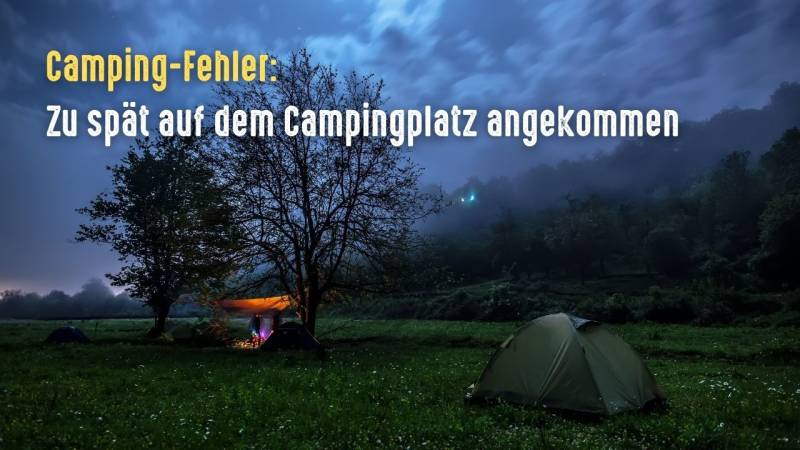
9. Fear of the Cold
Here it naturally depends on the season. In summer, it can also get cold, but not so cold that you freeze in your sleeping bag.
The first requirement is therefore a good sleeping bag. You can take a look at my best list and buying guide for sleeping bags here.
If you are out and about in the other seasons, you have to be more meticulous and the fear of it is justified.
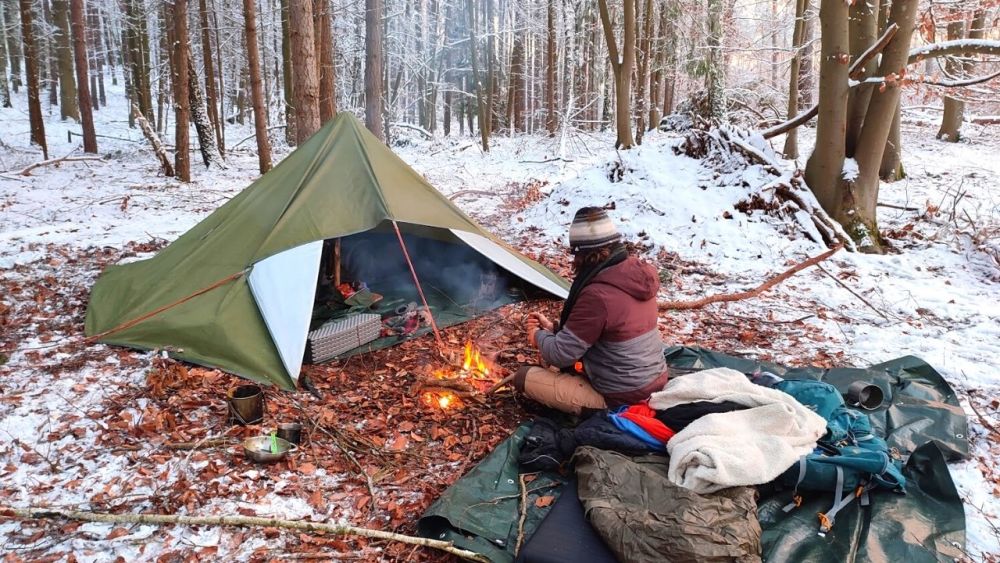
Because even if you don't freeze immediately, cold can rob you of sleep and ruin your entire day. Therefore, you should prepare yourself for temperatures below 10 degrees.
Proper clothing, the right tent, and the knowledge of making a fire are essential.
With proper preparation and equipment, you can also plan your camping trips in winter. However, I only recommend this if you are confident in the other seasons as well.
Also read
Sleeping outside in winter - with these proven tips it will definitely work - Many outdoor enthusiasts shy away from the cold of a winter night. But with the right equipment and tips, you can handle sub-zero temperatures.
10. No toilet or bathroom
If you're worried about not being able to do without the comfort of a bathroom, I recommend first visiting a campsite.
On a campsite, you will find everything your heart desires, from warm showers to toilets.
If you are camping in the wilderness, this luxury is to some extent denied to you. Therefore, you should certainly be prepared with the appropriate equipment.

So take toilet paper with you and ideally a small shovel to dig a hole. It is extremely important to leave everything as you found it. Find out in this guide how to properly go to the toilet in the forest.
In terms of showering, you can resort to rivers, streams, and lakes. However, refrain from using your shampoo or shower gel there. Generally, I will be clean enough for my camping routine even without soap.
In case of emergency, you can also rely on Hotshower hosts. They offer you their bathroom in their home.
11. Fear of "malicious" people
Similar to animal attacks, we are also easily deceived in our perception by movies and media reports.
And I would rather not deny that these situations do not occur, but they are extremely rare, as we actually think (The chance of being run over by a car in the city is much higher).
When camping alone in the forest, it is important to familiarize yourself with the specific region. The chances of being found by potentially dangerous individuals are low.
If this fear overwhelms you too much, it is also recommended to start on a campsite or not to go alone.
Alternatively, you can prepare for this eventuality to feel more secure. To achieve this, you can initially inform yourself about the region and, if necessary, ask in forums.
In addition, you can equip yourself with pepper spray or tasers (find more non-lethal weapons here) and take them with you when camping.
Furthermore, you should always tell your trusted fellow human beings about your trip. Ideally, you send out an approximate location every day so that it is always clear where you are currently located.
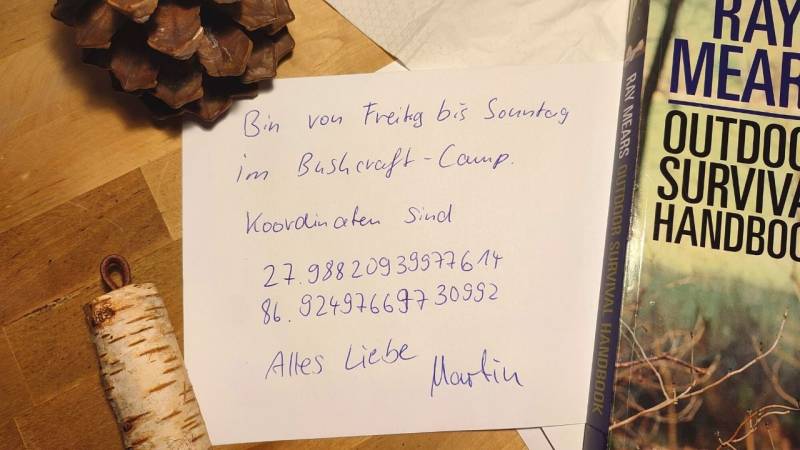
And what you should refrain from doing: Sharing your exact location on social media. A few pictures for Instagram are okay, but refrain from revealing your location.
12. Fear of Weather Changes
It can happen that the weather forecast shows nothing but sunshine and yet, it rains in the wilderness. That is annoying, but it should not ruin your entire camping trip.
Therefore, a poncho can never hurt (I always have one with me). Whether it's a rain jacket or a poncho - both are lightweight, take up little space, and give you security. This way, you don't have to sit in the tent all day, but can also go on an exploration tour in the rain.
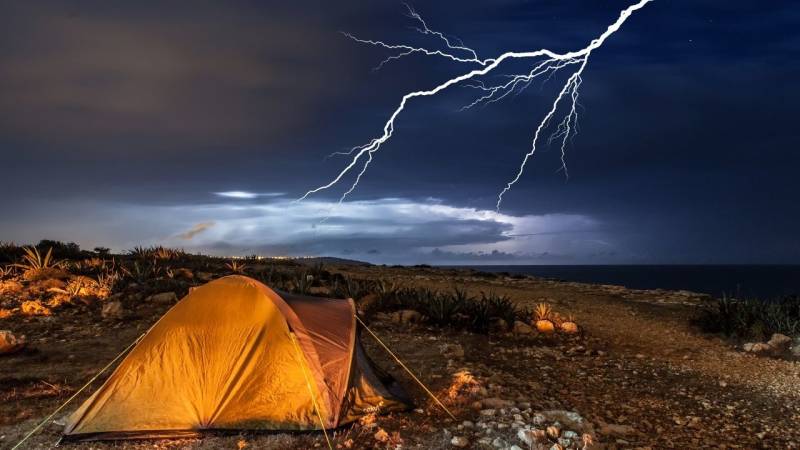
What is potentially the most common danger when camping?
A frequent and serious danger when camping is the weather - such as floods, lightning, and snow.
Campers can be surprised by these conditions, which can lead to injuries, getting lost, equipment damage, and even life-threatening situations. Extreme heat or extreme cold are also among the biggest risks when camping.
Read also
Is it dangerous to camp during a thunderstorm? How to stay safe? - Being outside during a thunderstorm is dangerous. But how should we behave if we are camping and a thunderstorm is approaching?
Conclusion: Fear is important - unfounded fear can be dangerous
Fear is an important survival mechanism and should not be demonized.
Irrational fears, on the other hand, can prevent you from having great experiences. Be aware of your fears and use them as indicators to thoroughly prepare for your endeavor.
Furthermore, be aware that you can plan a lot - but you also have to implement it.
If you never implement the whole thing, you may not fail, but you also won't learn anything. The key lies in thinking ahead, but then also getting started.
You will realize that many fears are unfounded and that you have only feared uncertainty.
Trust in yourself and the environment does not happen overnight. Take it slow and evaluate each of your camping trips step by step.
Celebrate your successes and learn from your failures!
The most important thing is always to stay calm, embrace the new experience, and creatively respond to changes.
Please don't hesitate to write in the comments where you still feel the most uncertain.

Sources for the guide
https://www.wissenschaft.de/erde-umwelt/warum-menschen-immer-im-kreis-laufen/
https://campingtroop.com/17-common-camping-fears-and-how-to-overcome-them/
https://www.arztphobie.com/psychologie/angst-alleine-draussen-zu-schlafen/
https://walking-wild.net/de/wandern-camping-outdoor/outdoor-allein-draussen-uebernachten-die-angst-im-dunkeln-verlieren
https://de.wikipedia.org/wiki/Angst
https://www.ride-worldwide.com/faq-frag-uns/wildzelten-und-wilde-tiere/

Author of the guide
Martin Gebhardt
Hey, I'm Martin. On my blog, you will learn the basics and numerous details about living in the wild. I think survival, bushcraft and the good life in nature are the keys to happiness. Find me here on Instagram or on YouTube. You can find more about my mission on the About Me page.
Was this guide helpful?
21 people found this guide helpful.
5.00 out of 5 points (21 Ratings)
Comments (0)
This post may contain affiliate links. So if you click on the links and make a purchase, I will receive a small commission at no additional cost to you. Click here, to learn more about it.


